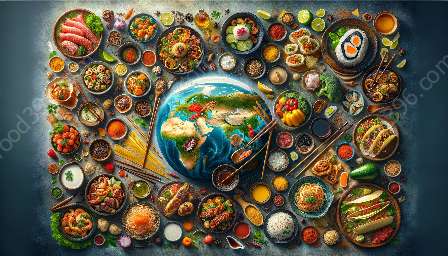Molecular gastronomy is a culinary discipline that explores the science behind cooking and eating. It involves the application of scientific principles and techniques to food preparation and presentation, creating innovative and unexpected culinary experiences. The term 'molecular gastronomy' was co-coined by physicist Nicholas Kurti and chemist Hervé This in the 1990s, and it has since revolutionized the way we think about food.
The Foundations of Molecular Gastronomy
At the core of molecular gastronomy is the idea of using scientific knowledge to understand and improve the culinary experience. This encompasses a wide range of disciplines, including chemistry, physics, and biology, to study the physical and chemical processes that occur during cooking and food preparation. By understanding these processes at a molecular level, chefs can develop new techniques and ingredients that transform traditional dishes into modern marvels.
The Science behind Flavors and Textures
Molecular gastronomy delves deep into the fundamental components of taste and texture. By analyzing the chemical composition of ingredients and understanding the interactions between molecules, chefs can manipulate the sensory experience of food. For example, they can create foams, gels, and emulsions with precise flavors and textures, providing diners with a multi-sensory journey through a single dish.
Techniques and Innovations
Molecular gastronomy has given rise to a multitude of innovative techniques that have redefined the boundaries of traditional cooking. These include spherification, a process that transforms liquids into spheres with a thin membrane, and sous-vide cooking, which involves vacuum-sealing food and immersing it in a precisely controlled water bath to achieve consistent results.
The Impact on World Cuisines
The influence of molecular gastronomy is not confined to a single cuisine or region. Chefs around the world have embraced its principles and techniques, incorporating them into their respective culinary traditions. This cross-pollination of ideas has led to the creation of dishes that fuse global flavors with cutting-edge culinary science, resulting in an exciting and diverse gastronomic landscape.
Comparative Study of World Cuisines
When conducting a comparative study of world cuisines, molecular gastronomy serves as a unifying factor that transcends cultural boundaries. It allows for the exploration of how different cuisines adapt and integrate scientific techniques to enhance their traditional dishes. Through this lens, one can appreciate the interconnectedness of culinary evolution and the constant exchange of culinary knowledge across borders.
Evolution in the Food and Drink Industry
The impact of molecular gastronomy extends beyond the realm of fine dining, influencing the food and drink industry as a whole. It has inspired the creation of innovative food products, such as encapsulated flavorings and novel textures, that cater to the evolving preferences of consumers. Additionally, the principles of molecular gastronomy have paved the way for advancements in food preservation, packaging, and sustainability, shaping the future of the culinary landscape.
The Future of Molecular Gastronomy
As technology continues to advance, the possibilities within molecular gastronomy are boundless. From 3D printing of food to the exploration of new ingredients at a molecular level, the trajectory of this culinary discipline points towards continual innovation and creative expression. Whether it's in high-end restaurants or home kitchens, molecular gastronomy invites us to re-imagine the culinary experience through the lens of science and art.

